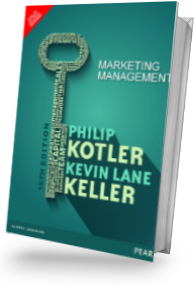Digital marketing
Ultimately, it’s about the ability to build relationships with customers online.
There is no doubt that we are on the cusp of a huge transformation in the online world. Tools like large language models (like ChatGPT, Claude or Gemini), alongside major leaps in AI and immersive tech like augmented and virtual reality (think Vision OS, Metaverse), are all set to shake up how we do digital marketing.
In the rapidly shifting landscape, knowledge management processes are constantly challenged. At Logeecom, we strive to both deepen our fundamental marketing expertise and expand our knowledge of new technologies and tools. This is what distinguishes our approach to digital marketing as a field of knowledge:
Staying focused on the big picture
The distinction between strategy and tactics in digital marketing seems straightforward, but we often observe an unfortunate conflation, leading to significant impacts on marketing budgets and overall business results. Clearly delineating tactics — which include search engine optimization (SEO), search engine marketing (SEM), content marketing, influencer marketing, or content automation — from the overall goal and direction of the client’s marketing initiatives is an important assignment for our digital marketing team.
Maintaining a good model of the rapidly changing online world
With a deep-rooted foundation in engineering, Logeecom is uniquely equipped to keep pace with the rapid transformations that define today’s digital landscape. Our strong technical grounding enables us to maintain a dynamic and robust model of the online world, despite its constant evolution. This, in turn, enhances our ability to anticipate and adapt to emerging trends, strengthening our services that leverage digital marketing knowledge.
Harnessing the power of hyper-personalization and individualization
Success in digital marketing depends on our ability to go beyond mere outreach. It requires making a personal connection and engaging deeply with people, understanding their unique needs, interests and challenges. Strong players in social media have already proven this. Effective communication is the name of the game. It enables us to articulate our messages clearly, appeal on an emotional level, and build lasting relationships. Thanks to recent advances in AI, we are now able to treat each (potential) customer as an individual with unique preferences and intentions. This allows us to implement effective communication practices in ways that were unimaginable just a few years ago.
Marketing management
This guide provides a foundation for all marketing endeavors. It explores innovative tools and strategies to excel in the evolving world of digital and traditional marketing.

How brands grow
An analysis of brand-building principles. It dispels common marketing myths, providing data-driven insights to foster growth and make your brand stand out.

Recovering from the ontological shock and leveraging the power of emerging technologies

“What an incredible six months… For some of my long-time colleagues, the world seems to have turned upside down. There were moments when we felt extremely vulnerable and exposed — a real ontological shock, if I may put it that way. While it would be nice to have more time to process these recent changes, we must move on and strive to harness the seemingly limitless power of new technologies to stay relevant in the online ecosystem. One question that continues to be asked in our community is: “is there a place for us?”
Indeed, there is — at least for now. But first, we need to acknowledge that things will never be the same. Next, we need to construct a solid mental model of the emerging facets of the online world. As with any complex system, I am confident that we will be able to identify numerous opportunities. Once I regained my mental equilibrium, I realized that pursuing these opportunities could lead to a once-in-a-lifetime professional journey. Today, I focus on two things: sharing that unique experience with young marketing students and applying that ever-evolving knowledge to real-time industry projects.”
 Đorđe JančićHead of Marketing OperationsLogeecom Belgrade
Đorđe JančićHead of Marketing OperationsLogeecom BelgradeThe paradox of knowledge is that it grows while it is shared
Sharing knowledge is like planting a seed – as it’s spread and cultivated through collaboration, it grows into a flourishing garden for new ideas, perspectives, and insights that benefit both our company as well as our entire business network.

Our experience in working with Logeecom over the years has been marked exclusively by utmost professionalism and fun cooperation. The partnership has had a profound impact on our technological ecosystem, driving innovation and setting new standards. The seamless communication ensured an efficient collaboration at every step. Looking forward to many more fruitful years ahead.

FAQ
In our FAQ section, we strive to provide answers to some of the most common and interesting questions that may be relevant to the visitors of this site. Our ambition to eliminate (or at least reduce) pollution from information overload is our guiding principle for online and offline communication and is scrupulously adhered to in this area as well.
How does emerging AI technology impact existing digital marketing strategies?
What we know for sure is that AI offers greater precision in data analysis and better scalability in content creation, leading to more effective marketing campaigns and more efficient operations. As a result, disruption at the operational level is almost guaranteed.
It is likely that strategies will be adjusted to accommodate these operational improvements. In addition, strategists are likely to explore newly discovered opportunities.
However, all of these benefits come at a cost. Privacy and security issues may increase, as may ethical considerations associated with AI’s decision-making capabilities. There could also be a lack of transparency in AI processes.
In summary, we can expect a wild ride.
What are the most interesting new marketing opportunities in Augmented/Virtual Reality?
- Interactive Advertising: Traditional ads can be transformed into interactive experiences using AR and VR. For instance, an advertisement for a new car could allow the viewer to virtually sit inside the car, or a movie trailer could place the viewer into a scene from the film.
- Brand Experiences: Companies can use AR and VR to create immersive brand experiences. These can be virtual tours, games, or other interactive content that aligns with the brand’s identity and message.
- Event Marketing: AR and VR can make event marketing more engaging. For example, a company could create a VR experience for a product launch or use AR to enhance the attendee experience at a trade show.
- Training and Education: AR and VR also offer brands the opportunity to provide educational content to their customers. For example, a makeup brand could use AR to provide guidance on how to use its products.
All in all, the field of digital marketing has just become much broader.
What impact do the new AI tools have on the handling of marketing data and the corresponding laws?
From a practical perspective, AI tools improve the handling of marketing data by automating processes, ensuring accuracy, and enabling deeper insights into large data sets. They can predict trends, segment audiences, and personalize marketing strategies, making data processing more efficient and strategic.
From a legal perspective, the integration of AI into marketing data processing brings a new set of legal challenges. These include privacy and data security concerns. Stringent laws such as the General Data Protection Regulation (GDPR) in the EU and the California Consumer Privacy Act (CCPA) in the U.S. impose strict guidelines for data handling.
In addition, the use of AI in data processing raises ethical considerations, such as issues of AI algorithm bias, transparency of AI decision-making processes, and potential data misuse. This requires a re-evaluation and possibly the development of new laws to ensure the ethical and lawful use of AI tools in the processing of marketing data.
All of this has been recognized by global legislators, and several initiatives are underway at the global and national levels, but as with all fast-moving technologies, this could be a race in which there will be no clear winners.